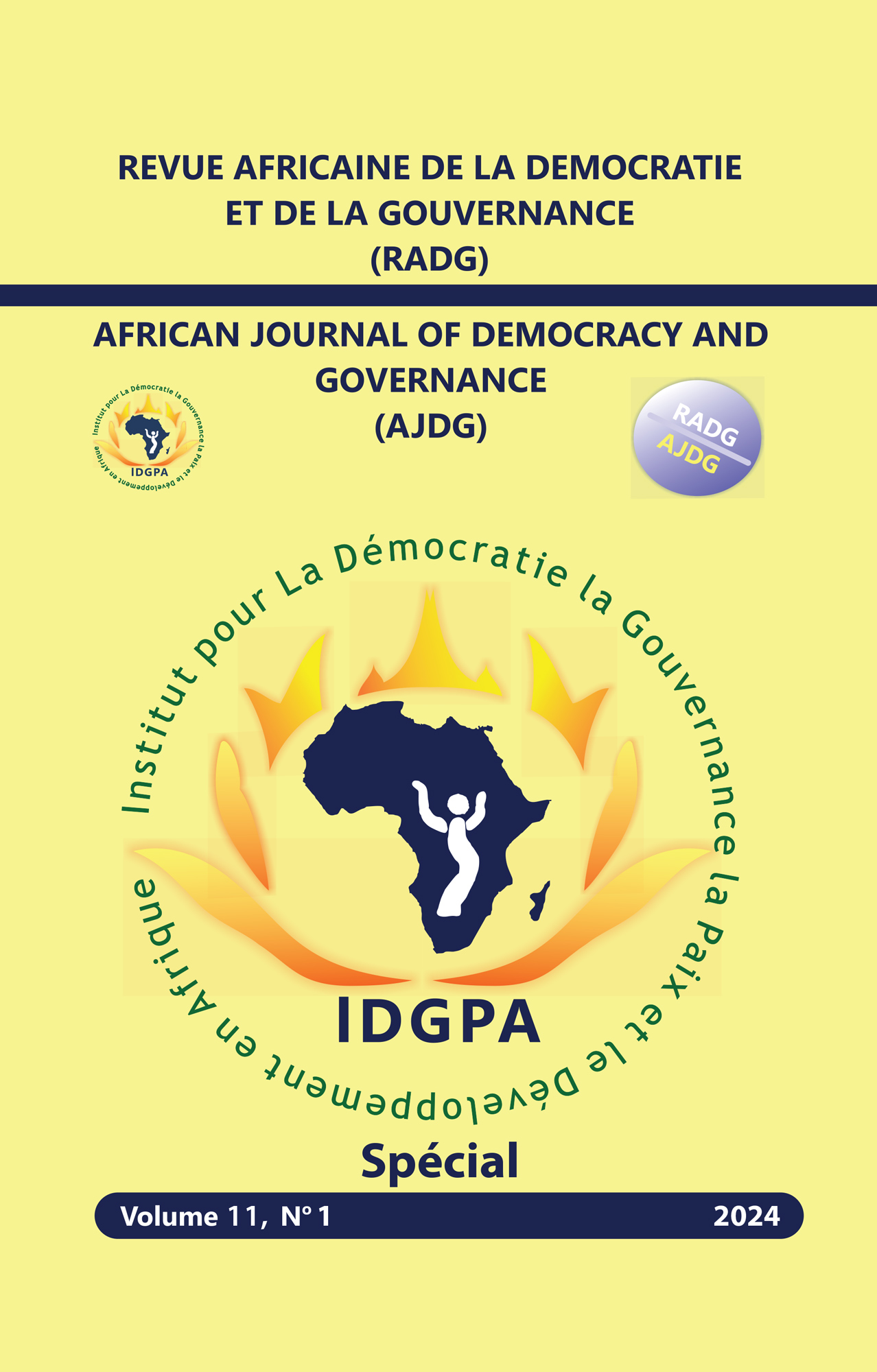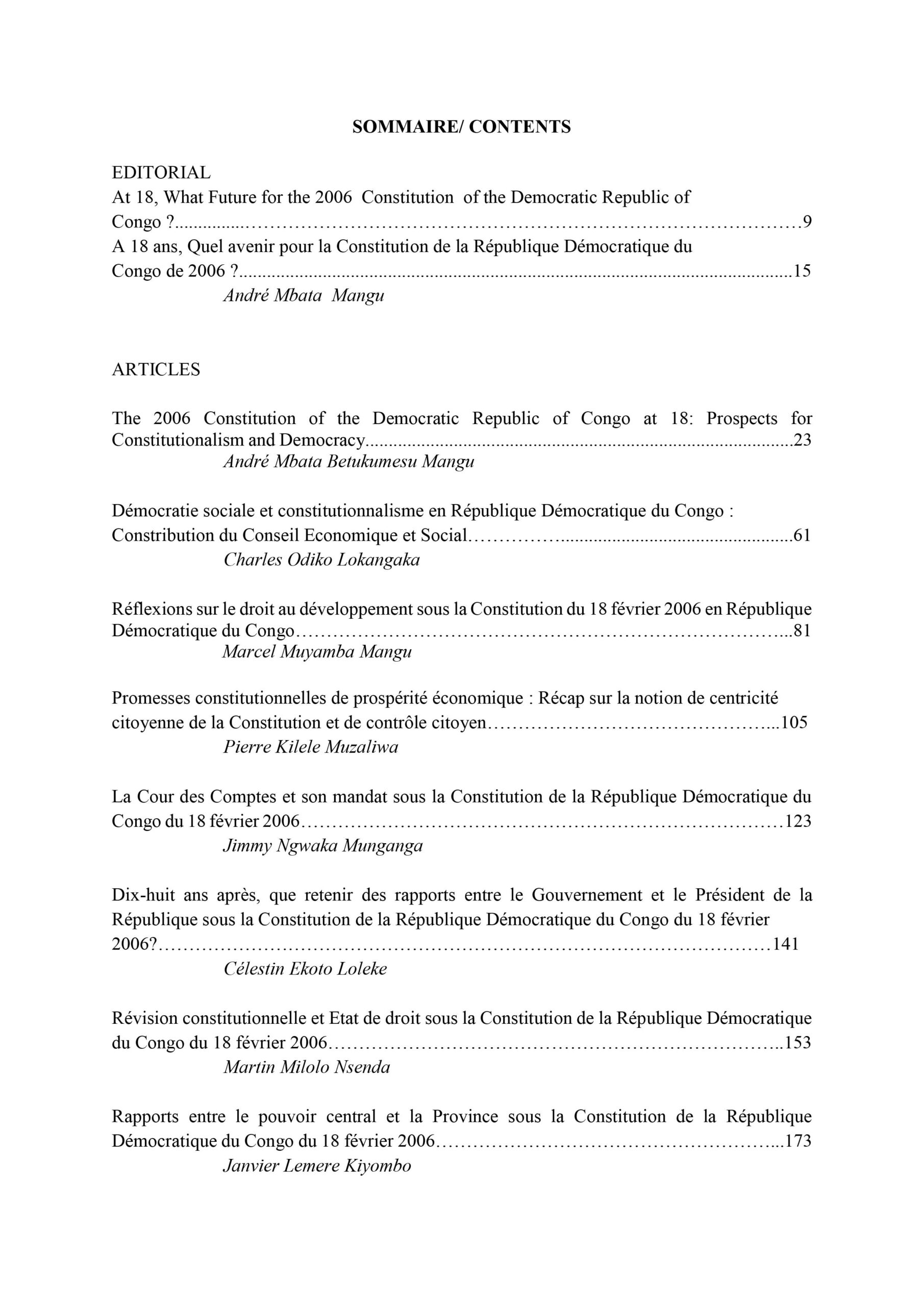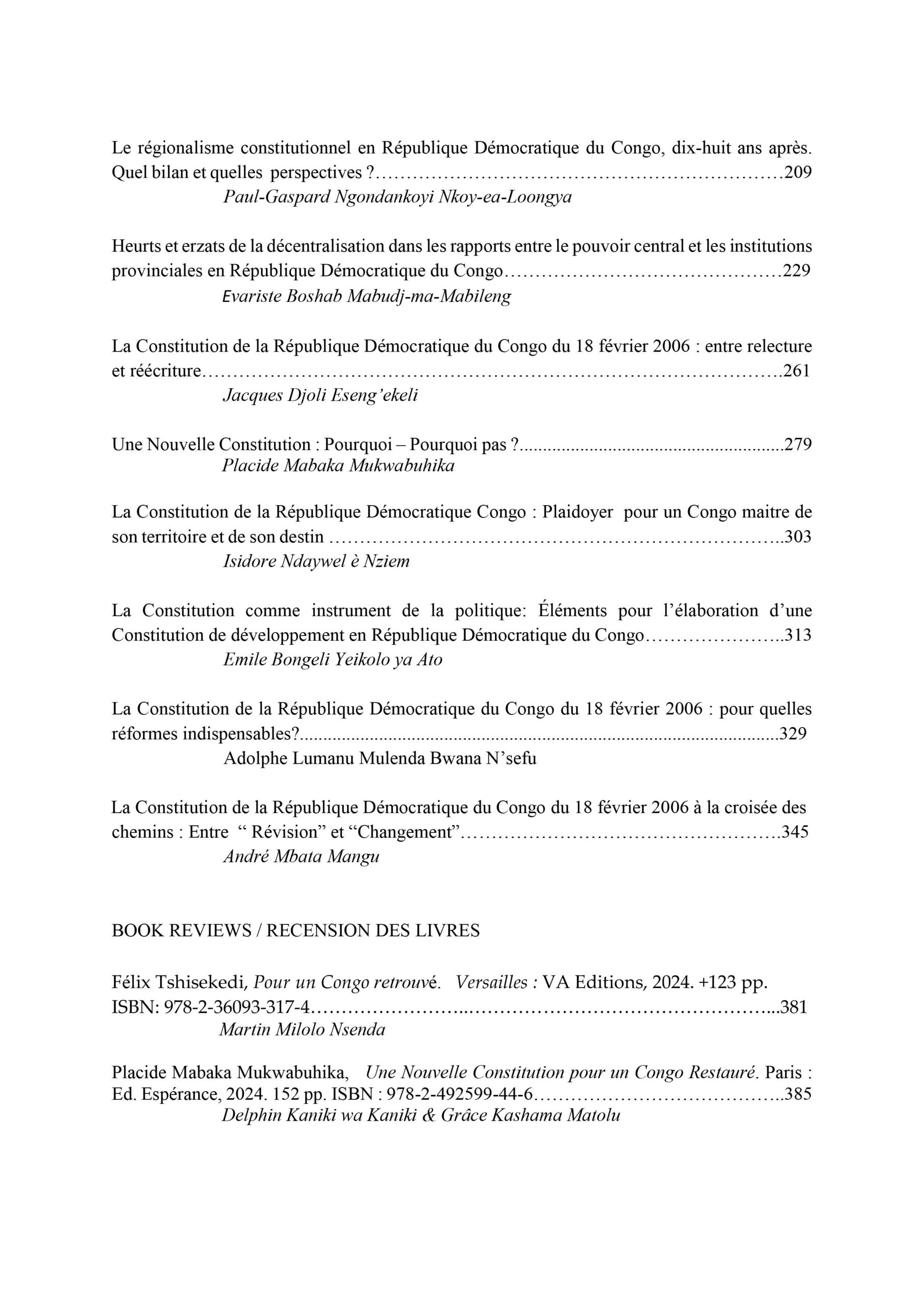Réflexions sur le droit au développement sous la Constitution du 18 février 2006 en République Démocratique du Congo
$ 10,00
Marcel Muyamba Mangu, Professeur à la Faculté des Sciences Sociales, Politiques et Administratives à l’’Université Pédagogique de Kananga, République Démocratique du Congo
Abstract
By Resolution 48/121 of 20 February 1993, the United Nations General Assembly held in Vienna recognised the right to development as an inalienable human right and an integral part of fundamental human rights. Therefore, the right to development cannot be set aside for any reason, including lack of development. This right must be realised in a manner that equitably addresses the problems of present and future generations and meets the developmental and environmental needs of the population. However, there is controversy regarding this right at the academic level as well as at the United Nations level. In the Democratic Republic of Congo, the right to development is constitutionally guaranteed in chapter 3 (collective rights) by article 58 of the Constitution which stipulates that ‘the State has the duty to guarantee the right to development’. However, the Constitution of February 18, 2006, is far from clear in terms of defining the content and scope of this right. The way in which this right is enshrined also raises questions as to the modalities of its application. This paper examines how the right to development is incorporated and applied in the constitution of the Democratic Republic of Congo? Furthermore, the Paper investigates what efforts have been made to implement the right to development and to what extent have they succeeded or failed? What could be the permissive conditions for the effective realisation of the right to development in the DRC?
Résumé
Par Résolution 48/121 du 20 février 1993, l’Assemblée Générale des Nations Unies réunie à Vienne a reconnu le droit au développement comme un droit humain inaliénable et partie intégrante des droits fondamentaux de l’homme. En République Démocratique du Congo, le droit au développement est constitutionnellement garanti au chapitre 3 (des droits collectifs) par l’article 58 de la Constitution qui stipule que l’Etat a le devoir de garantir le droit au développement sans pourtant le définir. La manière dont ce droit est consacré soulève également des questions quant aux modalités de son application. Ce papier examines comment le droit au développement est incorporé et appliqué dans la constitution de la République Démocratique du Congo ? Par ailleurs, le Papier enquête sur quels efforts ont été déployés pour la mise en oeuvre du droit au développement et dans quelle mesure ils ont réussi ou échoué ? Quelles pourraient être les conditions permissives pour la réalisation effective du droit au développement en RDC ?
Description
Muyamba Mangu, M. « Réflexions sur le droit au développement sous la Constitution du 18 février 2006 en République Démocratique du Congo », African Journal of Democracy and Governance, Vol 11, No 1, 2024, pp 81-104
Marcel Muyamba Mangu, Professeur à la Faculté des Sciences Sociales, Politiques et Administratives à l’’Université Pédagogique de Kananga, République Démocratique du Congo
Abstract
By Resolution 48/121 of 20 February 1993, the United Nations General Assembly held in Vienna recognised the right to development as an inalienable human right and an integral part of fundamental human rights. Therefore, the right to development cannot be set aside for any reason, including lack of development. This right must be realised in a manner that equitably addresses the problems of present and future generations and meets the developmental and environmental needs of the population. However, there is controversy regarding this right at the academic level as well as at the United Nations level. In the Democratic Republic of Congo, the right to development is constitutionally guaranteed in chapter 3 (collective rights) by article 58 of the Constitution which stipulates that ‘the State has the duty to guarantee the right to development’. However, the Constitution of February 18, 2006, is far from clear in terms of defining the content and scope of this right. The way in which this right is enshrined also raises questions as to the modalities of its application. This paper examines how the right to development is incorporated and applied in the constitution of the Democratic Republic of Congo? Furthermore, the Paper investigates what efforts have been made to implement the right to development and to what extent have they succeeded or failed? What could be the permissive conditions for the effective realisation of the right to development in the DRC?
Résumé
Par Résolution 48/121 du 20 février 1993, l’Assemblée Générale des Nations Unies réunie à Vienne a reconnu le droit au développement comme un droit humain inaliénable et partie intégrante des droits fondamentaux de l’homme. En République Démocratique du Congo, le droit au développement est constitutionnellement garanti au chapitre 3 (des droits collectifs) par l’article 58 de la Constitution qui stipule que l’Etat a le devoir de garantir le droit au développement sans pourtant le définir. La manière dont ce droit est consacré soulève également des questions quant aux modalités de son application. Ce papier examines comment le droit au développement est incorporé et appliqué dans la constitution de la République Démocratique du Congo ? Par ailleurs, le Papier enquête sur quels efforts ont été déployés pour la mise en oeuvre du droit au développement et dans quelle mesure ils ont réussi ou échoué ? Quelles pourraient être les conditions permissives pour la réalisation effective du droit au développement en RDC ?
Mots-clés : Développement ; Droit au développement ; Justiciabilité ; République Démocratique du Congo
Seuls les clients connectés ayant acheté ce produit ont la possibilité de laisser un avis.




Avis
Il n’y a pas encore d’avis.